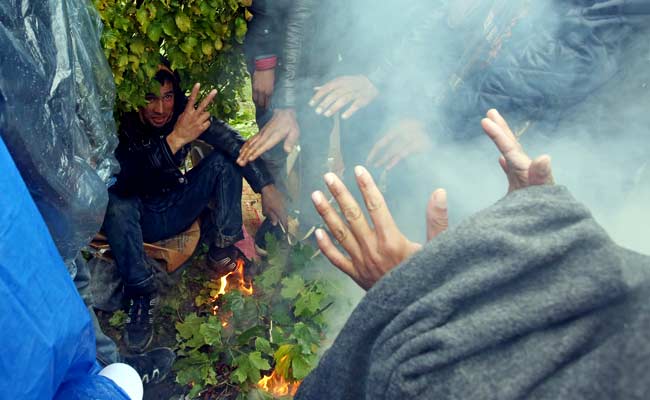

By Doina Chiacu
Syrians fleeing their country's nearly 5-year-long civil war face a number of hurdles and months in limbo if they want to go to the United States. Last week's attacks in Paris have generated more concerns about letting them in.
U.S. government vetting that includes face-to-face interviews, a health screening and security checks can take as long as two years.
American officials have called the Syrian refugees the most scrutinized group entering the country today. But after a Syrian passport was found near the body of one of the suspects in Friday's attacks in Paris, the governors of more than a dozen U.S. states said they would not accept refugees from Syria. It is not clear that governors may legally do this.
The State Department outlined the vetting and arrival process after President Barack Obama directed his administration in September to prepare to take in at least 10,000 people fleeing Syria over the next year.
The United States has admitted about 1,500 refugees since the Syrian civil war began in 2011, while European countries like Germany have agreed to take in hundreds of thousands to address the biggest migration crisis since World War Two.
WHO IS IN CHARGE:
The U.S. Refugee Admissions Program includes the State Department, the Department of Homeland Security and the Department of Health and Human Services. They work with international organizations, non-governmental and other groups, including religious organizations, to identify and settle refugees in the United States.
HOW LONG IT TAKES:
Processing includes an in-person interview, medical exam and security checks. None can be waived, as in some countries. The State Department said it takes from 18 to 24 months or longer to process a case from referral or application to U.S. arrival.
FIRST STEP:
Most migrants enter the U.S. refugee program through a referral from the U.N. High Commissioner for Refugees. Some apply directly. The State Department already has 18,000 referrals of Syrian refugees from UNHCR and has begun casework for more than 10,000.
PREPARING THE FILE:
Applications go to one of nine State Department-funded "resettlement support centers" overseas run by international or non-government groups. Caseworkers, who are not U.S. government officials, collect information from applicants.
THE INTERVIEW:
Officers from the Department of Homeland Security's Citizenship and Immigration Services travel from Washington to where the applicants are to decide whether they meet the legal definition of a refugee, based on whether they have faced or likely will face persecution.
SECURITY CHECKS:
Applicants undergo multiple background and security checks involving the National Counterterrorism Center; the FBI's Terrorist Screening Center; Homeland Security; and the State Department. Details of the checks are classified.
HEALTH SCREENING:
Applicants are screened for diseases that might pose a threat to public health. A resurgence of tuberculosis prompted U.S. health authorities in 2007 to tighten testing protocols.
FINAL LEG:
After a three-day cultural orientation class, the International Organization for Migration, an intergovernmental group, arranges travel. The U.S. government pays travel costs, but refugees sign a reimbursement agreement.
SETTLEMENT:
The State Department has resettled most of the Syrian refugees in Michigan, Illinois, California and Texas. A refugee can pick up and move to any other city.
Reuters




